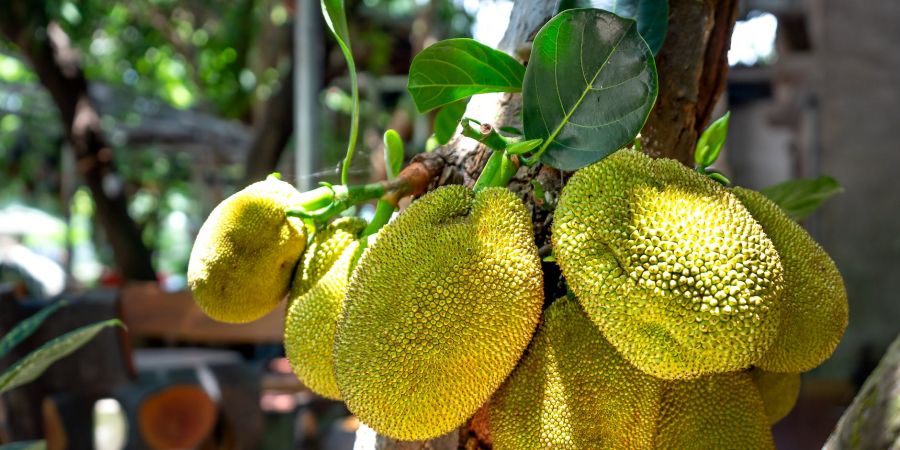

Jackfruit, scientifically known as Artocarpus heterophyllus, is a large tropical fruit native to South Asia. This magnificent fruit, often referred to as the "king of fruits," is celebrated for its enormous size, unique flavor, and exceptional versatility. With its growing popularity in recent years, jackfruit has captured the attention of food enthusiasts, vegans, and health-conscious individuals worldwide. In this article, we will explore the various aspects of jackfruit, from its remarkable characteristics to its culinary applications and potential health benefits.
Jackfruit is a truly remarkable fruit in terms of both size and appearance. It can reach an impressive weight of up to 80 pounds (36 kilograms) and measure about 3 feet (90 centimeters) in length. The fruit features a spiky green or yellowish-green rind, which protects the golden-yellow edible pods encased within. Each jackfruit can contain numerous individual pods, and the texture of the flesh is often compared to a blend of banana, mango, and pineapple.
One of the most remarkable aspects of jackfruit is its versatility in the kitchen. The unripe or green jackfruit is commonly used as a vegetable substitute in savory dishes. Its mild taste and fibrous texture make it an ideal meat alternative for vegetarian and vegan recipes. When cooked, the young jackfruit's texture resembles pulled pork or chicken, making it a popular choice for vegan barbecues, curries, stews, and sandwiches.
Ripe jackfruit, on the other hand, offers a sweet and tropical flavor. The golden-yellow pods can be eaten raw, juiced, or used in a variety of desserts, such as ice creams, smoothies, cakes, and puddings. Jackfruit seeds are also edible and can be boiled, roasted, or ground into flour for baking.
In addition to its culinary appeal, jackfruit boasts several health benefits. It is a rich source of dietary fiber, essential for maintaining a healthy digestive system and preventing constipation. Moreover, jackfruit is packed with vitamins, including vitamin C, which supports immune function, and vitamin A, essential for maintaining healthy skin and vision.
Jackfruit is also a valuable source of potassium, a mineral that aids in regulating blood pressure and maintaining heart health. Additionally, it contains antioxidants that help combat oxidative stress and protect against chronic diseases.
The cultivation of jackfruit offers environmental benefits as well. The tree is hardy and requires minimal pesticide use, making it an eco-friendly fruit to grow. Jackfruit trees also provide shade and contribute to soil preservation, making them valuable components of agroforestry systems. Furthermore, the fruit's ability to thrive in diverse climates and adapt to challenging growing conditions makes it a valuable crop for farmers in various regions.
Jackfruit's popularity has been spreading rapidly beyond its native regions. Its versatility, nutritional benefits, and sustainable qualities have made it a sought-after ingredient in the Western world. The increasing demand for jackfruit has opened up new economic opportunities for farmers in tropical regions, contributing to rural development and improving livelihoods.
Conclusion:
Jackfruit is a tropical giant that has captured the hearts and taste buds of people worldwide. Its impressive size, unique flavor, and versatility in the kitchen make it a prized fruit with endless culinary possibilities. Beyond its delicious taste, jackfruit offers notable health benefits and environmental advantages. As we continue to explore and appreciate the wonders of this remarkable fruit, it is evident that jackfruit has rightfully earned its place in the realm of gastronomy and sustainability.
